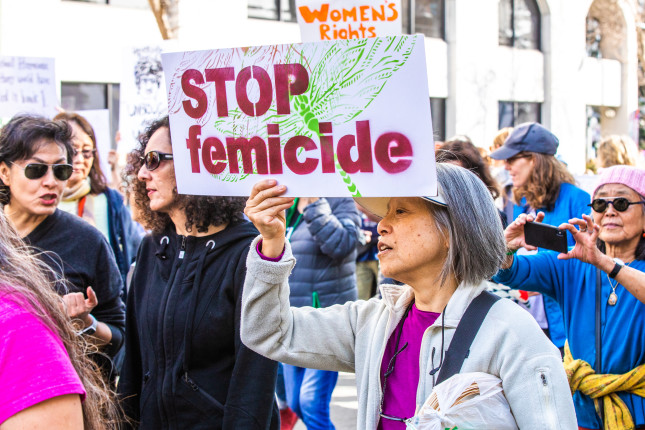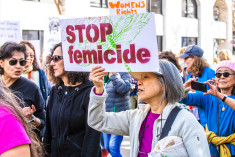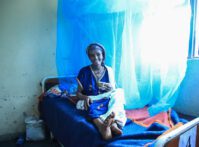-
16DaysCampaign Calls to End Femicide: Research Shows Women in Perinatal Period at Risk
December 1, 2021 By Shariq Farooqi
“Femicide is an important, but often unreported, cause of maternal mortality. This research documents the immediate need for universal abuse assessment of all pregnant women,” write the authors of the self-declared first study to report a definite link between abuse during pregnancy and attempted/completed femicide—the gender related killing of women. This study was published in 2002.

November 25-December 10 marks the 16 Days of Activism against Gender-Based Violence. This is the second in a series of posts recognizing the 16 Days Campaign.
“Femicide is an important, but often unreported, cause of maternal mortality. This research documents the immediate need for universal abuse assessment of all pregnant women,” write the authors of the self-declared first study to report a definite link between abuse during pregnancy and attempted/completed femicide—the gender related killing of women. This study was published in 2002.
In this study, researchers examined attempted and completed femicide cases and data on reported abuse in 10 US cities. The study found that 25.8 percent of attempted femicides and 22.7 percent of completed femicides involved women who experienced abuse during their pregnancy. The risk of femicide was three times higher for women who were abused during pregnancy than those who were not. Black women were found to be three times more likely than white women to experience attempted or completed femicide.
Nearly twenty years later, a study looking at the risk of pregnancy-associated homicide in the United States confirms that femicide is a leading cause of death during pregnancy and the postpartum period. Researchers examined mortality files from the National Center for Health Statistics for 2018 and 2019, with a focus on female victims between 10-44 years old and defined pregnancy-associated homicide as victims who were pregnant or within one year postpartum at the time of the homicide. Researchers compared the pregnancy-associated homicide mortality ratio with the homicide mortality ratio in non-pregnant, non-postpartum females, as well as ratios for other leading obstetric causes of death.
Researchers found that homicide during pregnancy or within 42 days postpartum was twice as high as all other leading causes of maternal mortality, including hypertensive disorders, hemorrhage, and infection. Race and age were indicators for increased risk of femicide. Pregnancy-associated homicides were significantly higher among non-Hispanic Black females. The risk for pregnancy-related homicide was six times higher for 10-19 year olds than for all other age groups and 20-24 year olds were the next most at risk group. In pregnancy-associated homicide cases, most victims were identified as non-Hispanic Black women and approximately half of the victims were women younger than 25.
The vulnerability of younger women, pregnant women, and Black women to femicide continues twenty years after the first study urged for the “immediate need” for attention to the role of femicide in maternal deaths in the United States and documented the increased risk for Black women. While the 2021 study proves diminished progress in addressing femicide during the perinatal period, the global community continues its fight against GBV. This year marks the 30th anniversary of the Global 16 Days Campaign which is a call to end gender-based violence worldwide. The campaign kicks off every year on November 25th, the International Day for the Elimination of Violence against Women and concludes on December 10th, Human Rights Day. Due to the prevalence and lack of impunity for femicide, the 2021 16DaysCampaign is focused on ending femicide. It is critical to focus on the growing evidence linking femicide to maternal mortality rates in the United States and prioritize pregnant and postpartum women’s safety through mandatory abuse assessments during the perinatal period.
Read more:
- The rise of femicide in Latin America and rule of law
- How can we protect women from violence in COVID-19?
- How does gender-based violence and maternal mental health intersect?
Sources: 16 Days Campaign, Center for Disease Control and Prevention (CDC), The American College of Obstetrics and Gynecology, World Health Organization.
Photo Credit: Stop femicide protest. courtesy of Flickr user Thomas Hawk.
Topics: Dot-Mom, GBV, gender, human rights, maternal health, newborn and child health, Reading Radar
 A Publication of the Stimson Center.
A Publication of the Stimson Center.







